Schemes disguised as "social criticism"
In recent years, hostile, reactionary, and political opportunists have been trying their best to support and incite domestic subjects to take advantage of social criticism to gather political opposition forces, promote social antagonism, and create opposition forces. They use the name of criticism to refute and oppose the Party's policies and guidelines and the State's policies and laws, aiming to eliminate the Party's leadership role and the socialist regime in Vietnam. They often take advantage of politically sensitive times in the country such as before and during the organization of Party congresses, elections of the National Assembly, People's Councils at all levels, or when important international events take place; when the National Assembly and the Government solicit public opinions on draft laws, programs, and projects, etc. to use the name of social criticism to conduct activities that violate the country's political security, order, and social safety.
These activities of hostile forces are quite diverse, but focus on a number of tricks: (1) Taking advantage of the internet and social networks, using the name of social criticism to publish speeches, articles, and video clips with incorrect opinions on the Party's policies and guidelines, the State's policies and laws, and specific decisions in ministries, branches, and localities; (2) sending "open letters" and "petitions" to all levels, branches, agencies, organizations, and key leaders of the Party and State with unhealthy intentions; (3) taking advantage of international forums and foreign press agencies to express opinions through speeches, articles, and interviews with content that distorts, exaggerates, and defames domestic shortcomings, especially the state of corruption and negativity in the state apparatus, in order to make the world misunderstand the guidelines, viewpoints, policies, and laws of the Party and State of Vietnam; (4) When the Party, State, ministries, branches and localities do not accept "critical" opinions (which are essentially reactionary and destructive arguments, viewpoints and opinions), they slander our Party and State for violating and suppressing democracy.
More than 10 years ago, during the process of our Party and State soliciting broad opinions from all walks of life on the draft of the 2013 Constitution, a group of intellectuals, scholars, and former officials with discontent and political extremism gathered together to make a so-called "petition" demanding the abolition of the leadership role of the Communist Party of Vietnam in Article 4 of the Constitution, with arguments that were both extremely fallacious, arbitrary inferences, and attacks and slanders against our Party.
Or recently, taking advantage of the policy of giving opinions on the draft Land Law (amended), some websites and bloggers have participated in "giving opinions" in a way that intentionally distorts the truth, causing people to misunderstand that "land is owned by the entire people and represented by the State" into "land is the exclusive property of the State", considering it the source of land speculation and corruption. They even distorted that amending the law is like "making a plow in the middle of the road", "the more you amend, the more obscure it becomes"... thereby inciting division in the great national unity bloc.

Illustration photo: VNA
A look at a few examples above shows that, under the guise of “democracy”, in the name of social criticism, hostile, opposing, and reactionary forces will stop at nothing to sabotage our country and regime. Their purpose is of course not to “give suggestions” to help the Party and State perform well in their leadership and management roles, but to undermine the prestige of the Party and State, in order to eliminate the Party’s leadership role, cause division and disagreement within the Party; to divide the Party and State from the people, cause political instability, sabotage the great national unity bloc and reach the ultimate goal of abolishing the socialist regime in Vietnam.
Awareness and proper behavior about social criticism in Vietnam
Social criticism is the independent, scientific analysis, evaluation, argumentation, and debate of social forces (including individuals or organizations) to affirm or refute, or propose amendments to policies, thereby helping competent authorities to consider and adjust them to better suit the common interests of the community. In essence, social criticism is a form of expression of freedom built on the basis of freedom of speech. Accordingly, social criticism is the right to express opinions in a systematic and scientifically based manner to exercise the democratic rights of individuals as recognized in international human rights treaties.
Based on the Party's viewpoints, the Constitution and the law, our country has specified the right to participate in social criticism of socio-political organizations and people of all walks of life. The 2013 Constitution of the Socialist Republic of Vietnam stipulates a number of human rights and civil rights closely related to social criticism such as the right to information, freedom of speech, right to referendum, right to participate in state and social management. Accordingly, Article 28 stipulates: “1. Citizens have the right to participate in state and social management, participate in discussions and make recommendations to state agencies on issues of the grassroots, locality and the whole country; 2. The state creates conditions for citizens to participate in state and social management; is open and transparent in receiving and responding to citizens' opinions and recommendations”.
The 2013 Constitution also officially recognized social criticism as a function of the Vietnam Fatherland Front. This provision was further specified in the 2015 Law on the Vietnam Fatherland Front, the 2020 Law on Amending and Supplementing a Number of Articles of the Law on Promulgation of Legal Normative Documents; the 2022 Law on Implementing Democracy at Grassroots Level, etc.
In order to make social criticism activities truly enter into real life, creating a democratic and open atmosphere in society, our Party and State also pay attention to perfecting the conditions to ensure the implementation of social criticism. Those conditions are:
Firstly, build a transparent and democratic institutional system that fully recognizes the rights of social critics (including freedom of speech, access to information, participation in state and social management, and social criticism); clearly define the responsibility for information disclosure and accountability of state agencies to ensure transparency in state management activities.
Second, ensure the implementation of people's right to access information, clearly define the responsibility for providing and disclosing information from public agencies, especially administrative agencies; clearly stipulate the rights and responsibilities of state agencies in providing information as well as have clear, specific and strict sanctions for acts of concealing or refusing to provide information by state agencies and civil servants.
Third, raise awareness of respect for freedom of speech, dialogue, listening and feedback of the subjects being criticized, directly the State agencies, officials and civil servants, combining education with binding mechanisms so that the subjects being criticized not only listen to the opinions of society but also know how to absorb and realize them in specific policies; build a two-way information mechanism between the State and citizens.
Fourth, improve the intellectual level of the community, promote propaganda and mobilization work so that all people are clearly aware of their rights and responsibilities as citizens; help people have full awareness of the principles, content, forms, and measures for conducting social criticism...
The above evidence shows that social criticism in Vietnam not only inherits but also supplements and develops international and regional principles and standards on democracy and freedom of speech in general, and on social criticism in particular. Encouraging and creating conditions for socio-political organizations and people of all walks of life to participate in social criticism, thereby promoting socialist democracy, is a consistent policy of the Party and State of Vietnam, expressed in the Party's resolutions, in the Constitution and laws of the State.
Social criticism in Vietnam is an effective way for people to participate in state management, a high level of development of direct democracy, clearly demonstrating the role of the people as the subject of power in the socialist regime. People can use their power directly through monitoring the activities of state agencies, or making recommendations, contributing opinions, criticizing, or directly participating in policy and law making and voting when consulted.
Thus, social criticism in Vietnam is not only a path and method for the people to exercise their mastery but also to protect their mastery; not only a tool for the people to control State power but also to protect the Party and the State. The progressive nature of the socialist regime stipulates that social criticism in Vietnam must demonstrate its constructive nature, not to create distance, division, and opposition between the people and the Party and the State, but to bring the people closer to the leadership of the Party and the State's management, to make "the Party's will conform to the people's will", so that the people can exercise their power more directly and substantially, and at the same time help the State better fulfill its role of serving the people. Therefore, all plots and acts of taking advantage of social criticism to sabotage the Party and the State, to divide and sabotage the relationship between the Party, the State and the people, and the great national unity bloc must be resolutely fought against and rejected.
Source


![[Photo] Ready for the top competitions of Vietnamese table tennis](https://vphoto.vietnam.vn/thumb/1200x675/vietnam/resource/IMAGE/2025/5/18/9c547c497c5a4ade8f98c8e7d44f5a41)
![[Photo] Party and State leaders attend the special art program "You are Ho Chi Minh"](https://vphoto.vietnam.vn/thumb/1200x675/vietnam/resource/IMAGE/2025/5/18/6895913f94fd4c51aa4564ab14c3f250)



![[Photo] Many young people patiently lined up under the hot sun to receive a special supplement from Nhan Dan Newspaper.](https://vphoto.vietnam.vn/thumb/1200x675/vietnam/resource/IMAGE/2025/5/18/6f19d322f9364f0ebb6fbfe9377842d3)
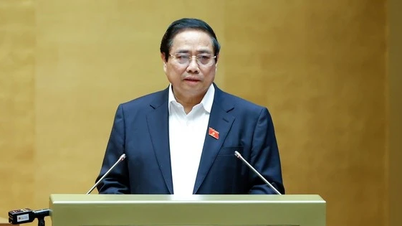

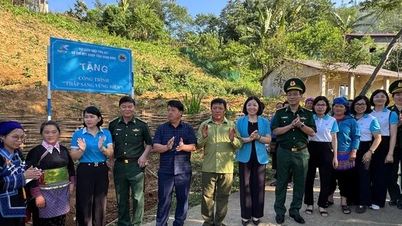
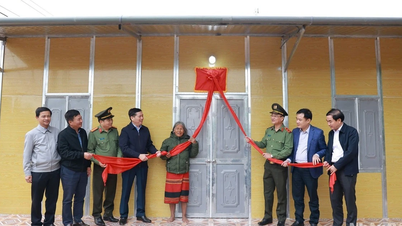
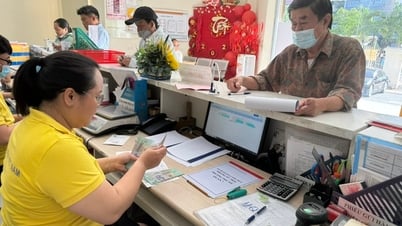
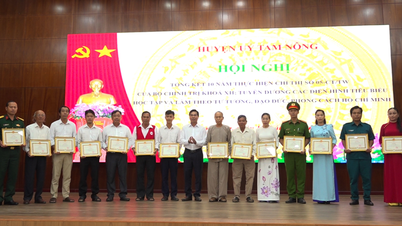







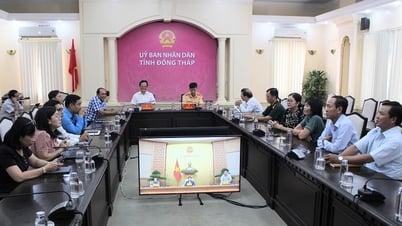
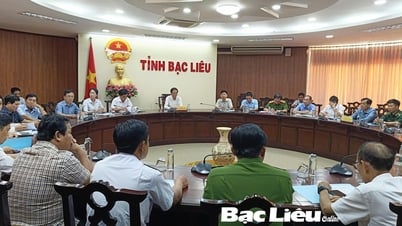
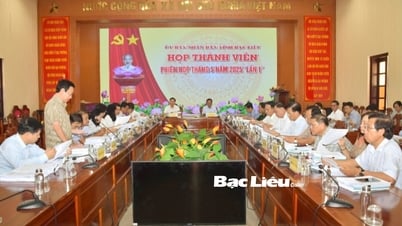
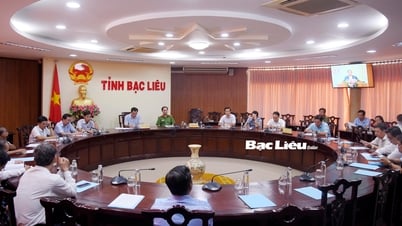






















































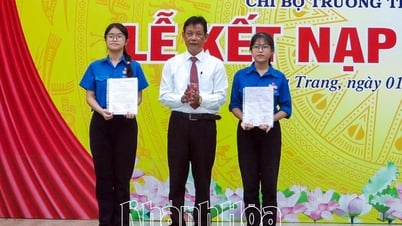
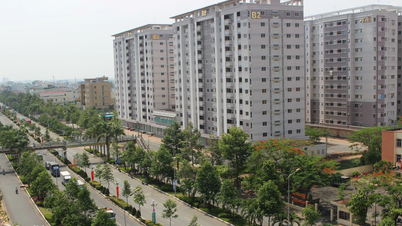










Comment (0)